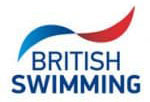Safeguarding and Protecting Children Workshops
These workshops will raise awareness of the tell-tale signs of abuse and provide the tools and confidence needed to deal with any issues sensitively, appropriately and effectively.
All those regularly in contact with children, young people, and vulnerable adults must attend this course every three years.
Time to Listen Workshops
Time to Listen workshops are available for club Welfare Officers and covers what to do if an incident arises, and what the role of the Welfare Officer entails. It is best practice to have two officers within the club that has attended this workshop, ideally a male and female.
Clubs can choose to have more than one Welfare Officer – often one male and one female officer is helpful. It is recommended that the Welfare Officer does not hold another position on the club committee, and is not an active teacher or coach at the club. In addition, the Welfare Officer should not be related to other members of the committee or members of the coaching team. This recommendation is made to avoid difficulties and conflicts of interest that could arise from a club member wishing to refer a concern to the Welfare Officer but feeling unable to do so.
We are aware that for some clubs it may not always be possible to recruit a truly independent Welfare Officer, and those clubs should therefore appoint a second or standby Welfare Officer. This means that, should a conflict of interest arise, the concern can be referred to the second Welfare Officer who could be someone else at the club able to meet the requirements of the role. Where a second Welfare Officer cannot be recruited, some clubs have made an agreement with the County or Regional Welfare Officer to assist in circumstances where the Welfare Officer is conflicted.
Please note: To attend this workshop the learner must have completed a recognised Safeguarding and Protecting Children Workshop within the previous 3 years. Time to Listen workshops are designed as “one off” training for Welfare Officers and there is no requirement for repeat training.
The CPSU also have a useful webinar for Welfare Officers on their website,
Upcoming Time to Listen Workshops
12th March, 12th June, 3rd October and 14th November 2024
The workshops last around 3.5/4 hours.
We normally provide Time to Listen Workshops twice a year. For more information please email us.
The Time to Listen workshop is being relaunched in 2025. As it will be a requirement for all club Welfare officers to complete this every 3 years, the region will host more workshops.
Safeguarding Workshops
Swim England host online workshops via Zoom and will, on occasion, organise an in-person workshop subject to numbers and presenters.
From January 1 2024, the national governing body will only accept Swim England Safeguarding training for those working within our clubs, counties and regions as part of our commitment set out in the Heart of Aquatics
This change will be mandatory, with a phasing-in period for those who hold existing approved safeguarding training that will be valid until its expiry date. For those who have not previously completed a Swim England tutor-led course, this will be the first step to achieving compliance.
The expectation is that members will complete a three-hour tutor-led course as initial training – which is valid for three years – followed by a refresher course three years later so that training can move in a six-year cycle. This update also addresses a gap in the national governing bodies’ training policy to cover 16 and 17-year-olds who are in a ‘Position of Trust’.
Also from 1st January 2024, Swim England Safeguarding Training will be required for those in this age group that are in coaching or teaching roles and are delivering a Swim England-recognised activity.
If you have any queries, please contact: [email protected]
Child Safeguarding Basic Awareness course
Swim England has launched the Child Safeguarding Online Basic Awareness course in conjunction with the Institute of Swimming as part of its ongoing commitment to create a safe environment for youngsters.
It gives athletes, parents, coaches, teachers, volunteers, committee members and technical officials an opportunity to develop their knowledge of safeguarding – and how to respond to any concerns.
The resource also gives young volunteers who are under 18 the chance to develop their awareness of child safeguarding as they start out on their volunteering journey.
Uploading of safeguarding certificates.
To ensure OMS is kept up to date going forward, safeguarding certificates need to be uploaded by the individual every time they attend a workshop.
Safeguarding Workshops – Adults
UK Coaching offer a Safeguarding Adults online workshop developed in conjunction with the Ann Craft Trust.



